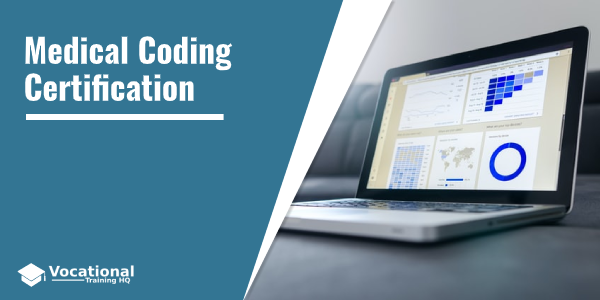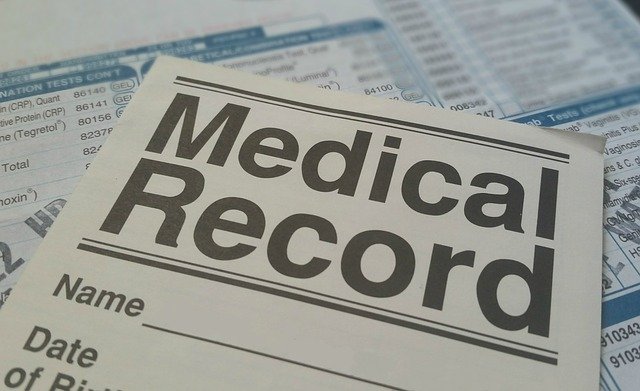There are several certification opportunities in the medical billing and coding field.
They are available through medical coder classes and medical billing and coding schools.
In a variety of industries, employers usually require candidates to hold medical coding certificates to prove their skills, competences, and abilities in the discipline.
They also demonstrate the commitment to a chosen career.
With certifications, candidates gain high-level knowledge required to thrive in a field.
Depending on the certification, students take different coding classes, exam components, and required training.
Besides, they have to meet various requirements for recertification, depending on the certifying agency and their certification.
Article Table of Contents
Medical Billing and Coding Certifications
Professionals seeking medical billing and coding certifications can review various medical coder courses and train with the American Association of Professional Coders (AAPC) and the American Health Information Management Association (AHIMA).
AAPC Medical Coding and Billing Certifications
AAPC provides education and professional certification to medical coders since 1988.
They raise the standards of medical coding by providing training, networking, and certification options.
The organization includes almost 200,000 members all over the world and offers 28 professional service coding, medical compliance, and professional billing, etc., certifications.
Through the CPC (certified professional coder) exam, professionals can demonstrate high-level skills in physician-based medical coding.
Upon the completion of the AAPC training, candidates become medical coders and can sign up for the CPC exam.
With this certification, coders can increase their income by $20,000 or more.
The exam includes 150 multiple-choice questions and 17 knowledge areas.
Candidates acquiring certification through AAPC should maintain their credentials by meeting continuing education requirements.
The focus of these requirements includes cardiovascular coding, practice management, interventional radiology, auditing, and compliance.
Certified Professional Coder
This certification is considered to be the most esteemed one for medical coders.
To earn the CPC credentials, candidates should pass a 150-question, multiple-choice exam that will test their medical coding proficiency.
Certified Outpatient Coder
This is the certification for professionals preparing for outpatient ambulatory coder positions.
They gain specialized knowledge and coding skills.
To obtain this certification, candidates much pass an examination.
Certified Inpatient Coder
This certification relates only to an inpatient facility and hospital coding and is one of the most prestigious certifications in the medical coding field.
This certification proves expert-level knowledge and experience.
Certified Risk Adjustment Coder
Professionals holding the CRC credentials are trained to read medical charts and assign the right diagnosis coded for clinical services and cases for risk adjustment models.
To earn this credential, candidates should pass an examination.
Certified Professional Coder-Payer
By obtaining this certification, candidates prove their knowledge and skills in medical coding.
They show the ability to decide provider claims by applying the basic knowledge of coding-related payer functions.
Specialized AAPC Certifications
Professionals can also acquire more specialized certifications.
They improve their skills and knowledge in more advanced disciplines of medical coding and billing.
With specialized certifications, professionals can acquire more career opportunities and higher salaries.
These certifications are usually obtained by experienced coders who demonstrate high levels of expertise in their specialty.
Certified Ambulatory Surgery Center Coder
To obtain this certification, candidates have to pass an exam.
The exam tests their skills in reading and interpreting operative notes to apply the right codes.
They should prove extended knowledge of medical terminology, physiology, and anatomy.
Certified Cardiology Coder
For this certification, candidates also have to pass an examination.
There is also a study guide available from AAPC to prepare for this certification.
Certified Family Practice Coder
For this credential, candidates pass an exam that tests their skills in reading and interpreting physician office notes and procedures to use the right medical coding.
AHIMA Medical Coding and Billing Certifications
AHIMA is an international non-profit organization of health information aimed at improving the quality of health records.
It promotes leadership roles to improve the management of health information.
The AHIMA certifications can be maintained through the recertification process of the association.
To acquire recertification, professionals need to earn a certain amount of continuing education credits within the certification cycle of two-years.
To obtain these credits, one can participate in education programs, independent studies, or get involved in or oversee the direct clinical practice.
The types of certifications offered by AHIMA and AAPC are different.
AHIMA certifications are usually for inpatient and outpatient coding.
The AAPC certifications, on the other hand, are designed for prospective coders in CPC credentials and outpatient coding.
Certified Coding Associate
For this certification, candidates should pass an exam that includes job analysis standards.
The exam is created with top-notch testing principles.
Certified Coding Specialist
The examination for this certification tests the ability of candidates to review the records of patients and assign the right codes for every diagnosis and procedure.
Certified Coding Specialist – Physician-Based
With this certification, candidates are prepared to work in physician-based settings.
They include physicians’ offices, group practice, specialty centers, and multi-specialty clinics.
These coders also work with the documentation of health information.
Specialized AHIMA Certifications
Professionals trained in medical billing and coding, who want to pursue a more advanced career path can acquire specialty certifications.
With them, coders have more career opportunities.
Certified Health Data Analyst
With this credential, candidates demonstrate solid knowledge in the organization and prove specialized skills.
They can demonstrate a level of professionalism and commitment to their discipline.
Certified in Healthcare Privacy and Security
Those who wish to obtain this certificate should hold an associate, bachelor’s, or master’s degree and have 2-6 years of experience in healthcare security management or privacy, depending on the degree they hold.
Certified Documentation Improvement Practitioner
With this certification, professionals can prove their skills in high-quality clinical documentation with health records of patients.
This certification prepares candidates for leadership roles in health information management and informatics.
Read the full guide: How to Become a Medical Biller and Coder



